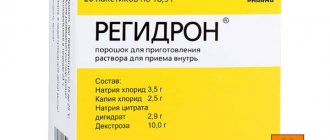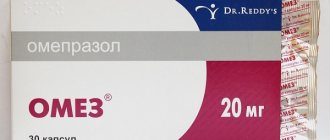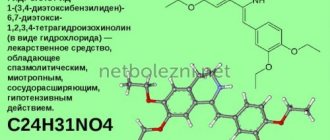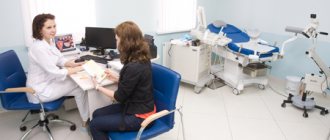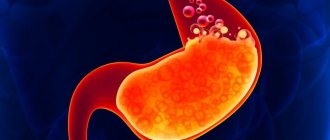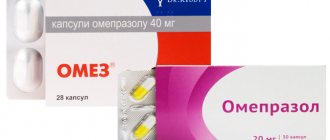Intoxication due to consumption of poor-quality food, excessive alcohol consumption and medication overdose requires immediate assistance. Medicines for poisoning will help relieve the main syndromes, prevent the development of complications and improve your well-being.
Suitable medications will help you cope with poisoning
The effectiveness of drugs in case of poisoning
If signs of poisoning with food, alcohol, or medications appear, it is necessary to urgently take measures to eliminate the symptoms of intoxication in order to avoid the development of severe complications.
How do anti-poisoning drugs work:
- prevent dehydration, restore water-salt balance;
- help cope with vomiting, heartburn and diarrhea;
- eliminate pain and spasms;
- improve the process of digesting food;
- remove toxic and poisonous substances from the body;
- restore the balance of intestinal microflora.
In children, pregnant women and the elderly, poisoning is severe and often develops dangerous consequences, since recovery takes longer.
Review of drugs and their types
Drug treatment of intoxication is represented by a wide selection of drugs with different effects. You should, with the help of a specialist or carefully study the instructions, choose the appropriate option.
Laxatives are used for constipation. The action of the drugs is aimed at increasing intestinal motility, softening stool, and inhibiting the absorption of toxins in the intestines.
| Representatives | pharmachologic effect |
| Lactulose syrup | Due to osmotic activity, the drug retains water in the intestines, softening and removal of feces occurs. The drug has no contraindications and is allowed to be used by pregnant and lactating women, infants, and adults. |
| Macrogol | Accelerates bowel movements and cleansing of the body, improving intestinal motility. |
| Microlax | Enema with a laxative drug. |
Sorbents are necessary to remove toxic substances from the body. Phenols and free radicals are bound and removed from the body. The drugs eliminate the symptoms of intoxication: nausea, vomiting, diarrhea. Sorbents are taken in the first hours after poisoning; during acute conditions there will be no effect.
| Representatives | pharmachologic effect |
| Activated carbon, Lactofiltrum | Adsorbents remove heavy metal salts, gases, and toxins from the body. Lactofiltrum is weakly effective against poisoning with acids and alkalis. |
| Polysorb (powder) | Detoxifier, fights food and bacterial infections, effective against poisoning with alcohol, radionuclides, and drugs. |
| Enterosgel | Detoxifies the body and is not absorbed into the gastrointestinal tract. Enterosgel is approved for use in childhood, pregnancy and lactation. |
| Smecta | Sorbent of natural origin, has a detoxifying absorbing effect. |
| Atoxyl | The active ingredient is silicon dioxide. Effective for food allergies and food poisoning. |
Together with toxins, sorbents remove beneficial substances, water, vitamins and minerals from the body. Take electrolytes together as prescribed by the doctor, vitamins and minerals.
Probiotics are needed to restore the microflora of the stomach and intestines. The drugs suppress the growth of pathogenic microflora and promote the restoration of bacteria.
| Representatives | pharmachologic effect |
| Hilak Forte | Restores stomach acidity, normalizes microflora after surgical interventions and poisoning. |
| Bifidumbacterin, Enterol | A mixture of bifidobacteria that restores intestinal microflora in case of dysbacteriosis and intestinal infections. |
| Linex | Taking Linex ensures the flow of therapeutic microflora into the gastrointestinal tract. |
https://youtu.be/2wxwidJtXVE
Medicines for poisoning
When treating poisoning, an integrated approach is used; it is imperative to take sorbents and means to prevent dehydration; the choice of other medications depends on the symptoms that accompany intoxication.
Drugs to prevent dehydration
Regidron is a powder with a high content of sodium compounds, the best drug for preventing and eliminating dehydration in adults and children. The contents of one sachet must be dissolved in 500 ml of water, the total amount of solution is calculated taking into account the person’s weight - 10 ml/kg, this volume must be drunk in small sips within the first hour after poisoning. Then the dosage can be reduced to 5 ml/kg. Contraindications: renal failure, intestinal obstruction, cholera diarrhea. Average cost – 400–430 rubles.
Adsorbents
Sorbents are first aid for any type of poisoning; they help quickly cleanse the body of toxins, poisons, and bacteria. After taking it, the number of vomiting decreases, and there is a slight decrease in temperature, which often occurs during intoxication.
List of effective adsorbents:
- Activated carbon is a drug capable of absorbing more than 220 different toxins, which allows it to be used in various forms of mass poisoning and is safe for childhood intoxication. To begin with, you need to take 20 tablets one time, then take 10 pills every 2–3 hours for 3–5 days. Contraindications – taking antibacterial drugs, stomach and duodenal ulcers. Possible side effects - diarrhea, constipation, stool becomes black. Price – 60–70 rubles.
- Smecta is a good sorbent of natural origin with an enveloping effect, suitable for treating children, and is several times more effective than activated carbon. The contents of 1 sachet must be dissolved in 100 ml of water and drunk every 6-8 hours for five days. It should not be taken if there is constipation or intestinal obstruction; during treatment, flatulence and vomiting sometimes occur. Price – 150–160 rubles.
- Polyphepan is a wood-based sorbent that effectively removes chemical and toxic irritants. The daily dose is calculated taking into account the person’s weight, the severity of poisoning - 0.5–1 g/kg, it should be divided into 3–4 parts, the required amount should be dissolved in 100 ml of water immediately before use. Duration of treatment is 3–5 days. Contraindications: gastritis, tendency to constipation; allergic reactions may occur during treatment. Price – 75–80 rub.
Polyphepan - natural sorbent
Enzymes
Medicines from the group of enzymes help against food poisoning, and with alcohol intoxication - they reduce the load on the pancreas.
Mezim – protects the walls of the stomach from the negative effects of hydrochloric acid, accelerates the process of digestion of food, and eliminates the symptoms of intestinal infections. Adults and children over three years of age take 1–2 tablets with meals with plenty of water. Contraindications – pancreatitis, hypersensitivity to the active ingredients of the drug, intestinal obstruction. Possible adverse reactions are bronchospasm, increased lacrimation, skin rashes, nausea, diarrhea, epigastric pain. Average cost – 190–220 rubles.
Mezim is an effective remedy for poisoning
Festal is an effective drug that contains a set of active enzymes, but it can only be taken once, otherwise the pancreas may malfunction. Dosage – 1-2 tablets three times a day after meals for 5-7 days. Contraindications – hepatitis, pancreatitis, tendency to diarrhea, presence of gallstones, intestinal obstruction. During treatment, allergic reactions and dyspeptic disorders may occur. Price – 260–330 rub.
Medicines for poisoning and vomiting
Vomiting is a protective reflex, as the body tries to quickly get rid of toxic substances. But with severe food or alcohol poisoning, attacks can be frequent, profuse and uncontrollable, so it is necessary to take antiemetics and medications to slow down peristalsis.
Cerucal is an effective antiemetic drug. You should take the medicine half an hour before meals, 1-2 tablets three times a day. The medicine is not prescribed for bleeding in the gastrointestinal tract, intestinal atony, peptic ulcer, biliary dyskinesia, or tendency to flatulence. Possible adverse reactions are drowsiness, thirst, dizziness. Price – 120–130 rubles.
Domrid - effectively fights nausea and vomiting, eliminates heartburn and abdominal pain, available in tablets for adults and as a children's suspension. The drug should be taken 3-4 times a day, the dosage for a child under 12 years old is 0.25 ml/kg, over 12 years old – 10 ml, adults should take 1 tablet. Duration of treatment – 2 days.
Contraindications – renal and hepatic pathologies, pituitary tumors, heart failure, intestinal obstruction, gastrointestinal bleeding. Possible adverse reactions are allergies, disturbances in the psycho-emotional state, severe thirst, convulsions, swelling, heart rhythm disturbances, disruptions in the digestive system. Average cost – 100–130 rubles.
You should not induce vomiting if you suspect poisoning with alkali, acids, kerosene, gasoline, if more than half an hour has passed after taking an increased dose of medications.
Antispasmodics
Any poisoning is accompanied by pain and colic in the abdomen - antispasmodics help quickly eliminate unpleasant symptoms by relaxing smooth muscles.
List of drugs:
- No-spa - the medicine acts quickly and has a minimum number of contraindications. Adult dosage - 3-6 tablets per day, the medicine should be taken in 2-3 doses, children under 12 years old can take a tablet in the morning and evening, over 12 years old - 2 pills every 12 hours. Duration of therapy – 2 days. The drug is not prescribed for problems with the absorption of lactose, galactose, low cardiac output syndrome, severe pathologies of the kidneys and liver. During treatment, a decrease in blood counts, heart rhythm disturbances, migraines, and deterioration in sleep quality may be observed. Price – 180–220 rub.
- Platiphylline – eliminates spasms and has a mild sedative effect. Take 1 tablet every 8–12 hours. Contraindications – ischemia, glaucoma, disorders of the thyroid gland, heart, kidneys, liver. Adverse reactions - thirst, urinary retention, headache, dilated pupils, tachycardia. Price – 70–80 rubles.
- Papaverine is an inexpensive medicine that can be used to treat babies older than six months. The frequency of administration for adults and children is the same - 3-4 times a day. Single dosage for children under four years of age – 0.005–1 g, over 5 years of age – 0.01–0.02 g, for adults – 0.04–0.08 g. Contraindications – glaucoma, liver dysfunction, old age, recent traumatic brain injury, benign prostatic hyperplasia. During treatment, blood counts may decrease, drowsiness, allergies, and constipation may occur. Bloating. The average cost is 70–80 rubles.
You should take painkillers with caution - the symptoms of poisoning are similar to an attack of appendicitis, any medications blur the clinical picture, which makes diagnosis much more difficult.
Papaverine can be given to children older than six months
Mechanism of action of the drug
In case of poisoning, omeprazole has a bactericidal effect on the mucous membrane. The drug is prescribed for patients with gastritis and stomach ulcers. Diseases of the duodenum are also treated with medication. The gastric mucosa is affected by chronic diseases and pathogens. The active substance reduces the pain of the affected areas by stimulating cell regeneration. Recovery occurs faster, the person begins to feel better.
The patient feels improvement within an hour after taking the tablet. The action lasts 24 hours. The higher the dose of medication prescribed, the higher the rate of recovery.
Doctors note the beneficial effect of the drug on the internal state of the digestive organs. Restored mucous membranes after illness are protected from re-injury. The possibility of negative consequences of the disease is eliminated.
Folk remedies for poisoning
Alternative medicine recipes are safe and accessible, they act effectively and quickly for various types of poisoning.
The best folk recipes against poisoning:
- A decoction of oak bark will help relieve signs of acute poisoning - pour 250 ml of 3 tbsp. l. crushed raw materials, cook over low heat for 20 minutes, cool, strain. Drink 30 ml 3-4 times a day.
- Rice water is the best remedy for treating any type of poisoning; it has an enveloping effect and destroys the causative agents of infectious diarrhea. Bring 400 ml of water to a boil, add 2 tbsp. l. grains, cook over low heat for 45 minutes, stir occasionally. Cool, you don’t have to strain the solution, drink 55–70 ml every 6 hours.
- When the first signs of poisoning appear, add 0.5 tsp to 250 ml of boiling water. cinnamon powder, strain after a quarter of an hour. During the day you need to drink 1 liter of the drink, it eliminates spasms well and is a natural sorbent.
- To eliminate vomiting, abdominal pain, and cleanse toxins, you need 1 tsp. dill seed, brew 300 ml of boiling water, leave in a closed container for 2-3 minutes, simmer over low heat for another 2 minutes. Cool, strain, add 5 ml of honey. Drink 1–1.5 liters of the drink in small portions throughout the day.
- In case of poisoning with petroleum-based solutions, stir 6 raw yolks in 500 ml of water and drink the drink in small sips.
A decoction of dill seed cleanses the body of toxins
In case of drug and alcohol poisoning, it is necessary to place a cold compress on the forehead to reduce the likelihood of toxic substances penetrating into the brain tissue.
When the stomach is poisoned, dehydration often occurs and severe disturbances in the functioning of the digestive system develop. Timely therapy with medications and folk remedies will help avoid the development of complications; we should not forget about proper nutrition and a healthy lifestyle.
Rate the article ( 6 ratings, average 4.33 out of 5)
When you abuse medications, eat spoiled food, use household chemicals, or drink alcohol, intoxication occurs. For poisoning, medications are prescribed that absorb and expel poisons from the body.
Do you still think that healing your stomach and intestines is difficult?
Judging by the fact that you are now reading these lines, victory in the fight against diseases of the gastrointestinal tract is not yet on your side...
Have you already thought about surgery? This is understandable, because the stomach is a very important organ, and its proper functioning is the key to health and well-being. Frequent abdominal pain, heartburn, bloating, belching, nausea, bowel dysfunction... All these symptoms are familiar to you firsthand.
But perhaps it would be more correct to treat not the effect, but the cause? Here is the story of Galina Savina, about how she got rid of all these unpleasant symptoms... Read the article >>>
Feeling unwell, the body feels like it’s turning inside out - these can be the consequences of a dubious pie at the station. Many people have experienced food poisoning. But few people know how to deal with this disorder. We will tell you what food poisoning is and what to do if you become intoxicated.
Food poisoning is an acute digestive disorder caused by consuming low-quality or toxic foods and drinks.
Food poisoning infections (FTI). Occur due to consumption of food contaminated with pathogenic microorganisms. For example, stale food. Failure to comply with sanitary and hygienic standards can also provoke PTI. Toxic (non-infectious) poisoning. They occur when natural or chemical toxins enter the body with food. For example, poison from inedible mushrooms and plants, as well as chemicals.
The last type of poisoning is the most dangerous. You shouldn't fight them on your own. If you suspect non-infectious poisoning, you should immediately consult a doctor.
Also, regardless of the type of poisoning, qualified medical care is necessary for pregnant and lactating women, children and the elderly.
But usually people encounter toxic infections that can be treated at home. Next, we will talk about what steps to take to cope with PTI on your own.
Symptoms and pathogenesis
The course of food poisoning depends on the age and general condition of the person, as well as the type of pathogenic bacteria. But the general picture is this:
obsessive nausea; repeated vomiting; weakness, malaise; changed complexion; diarrhea; chills; elevated body temperature.
PTI is characterized by a short incubation period. The first signs appear 2–6 hours after eating and progress quickly without treatment.
Treatment
Step 1. Gastric lavage
When the first symptoms appear, the remaining toxic food must be removed from the body. To do this, wash the stomach. The algorithm of actions is the same as when providing first aid.
Prepare a weak solution of potassium permanganate (potassium permanganate) or baking soda (1 tablespoon of soda per 1.5–2 liters of water at room temperature). Drink some of the solution. Induce vomiting (press the root of the tongue with two fingers). Repeat the procedure several times until the vomit is clear.
Step 2. Taking sorbents
Sorbents are drugs that help remove toxins from the body. The most famous of them is activated carbon.
Activated carbon reduces the absorption of toxins, heavy metal salts, alkaloids and other harmful substances into the gastrointestinal tract, and also promotes their removal from the body.
Dosage for poisoning: one tablet for every 10 kg of body weight.
In other words, if you weigh 70 kg, then you will need at least seven tablets. In severe cases, the dosage should be increased.
In case of poisoning, it is better to take coal in the form of an aqueous suspension. To do this, crush the tablets and mix with 100 ml of boiled water at room temperature. This mixture tastes quite nasty, but it effectively fights poisoning.
You can also use white charcoal instead of regular charcoal. It is believed that this is a selective, concentrated sorbent. It not only removes toxins, but also retains nutrients. In this case, the dosage is halved: for an adult, 2–4 tablets, depending on the degree of poisoning.
Instead of coal, you can use other sorbents (according to the instructions). For example, “Smecta”, “Lactofiltrum”, “Enterosgel” and others.
Step 3: Drink plenty of fluids
Vomiting and diarrhea severely dehydrate the body - you need to replenish fluid losses and maintain water balance.
Drink at least 2–3 liters of boiled water per day.
It is recommended to add salt to the water: 1 teaspoon of table salt per liter of water. The saline solution can be alternated with sweet, weak tea.
You can also take special rehydration products: “Rehydron”, “Oralit” and others. These are powders and solutions containing mineral salts and glucose and preventing dehydration.
Other medicines
As for taking other medications for toxic infections, there are several general rules:
When active vomiting stops, you can use drugs that restore the intestinal microflora (Hilak Forte, Linex, Mezim and others). If the temperature rises above 37.5 degrees, it must be brought down with antipyretics (paracetamol, ibuprofen and others). Taking painkillers is not recommended: they can complicate diagnosis in case of complications. Antimicrobial drugs (mostly antibiotics) are used in severe cases of toxic infection and are prescribed exclusively by a doctor.
Step 4. Routine and diet
With a food infection, the patient feels severe weakness. You should adhere to bed rest and refuse to eat for the first day (if your appetite is impaired and your body rejects food).
On the second or third day, you can indulge in jelly, crackers (without poppy seeds, raisins, vanilla or any other additives), as well as liquid mashed potatoes or oatmeal porridge cooked in water.
With active treatment, symptoms subside - improvement should occur within a few hours. The body finally returns to normal, usually within three days. But abdominal pain, weakness, and flatulence may persist for several more days.
If the main symptoms (diarrhea, vomiting, fever) do not decrease and do not go away more than six hours after starting treatment, consult a doctor.
Step 5. Prevention
No one is immune from foodborne infections. But everyone has the power to reduce their risk to a minimum.
Wash your hands before eating. Keep the kitchen clean and follow cooking techniques. Store food correctly. Be demanding about the quality of products when purchasing. For example, do not buy fish with an ammonia smell and a “rusty” coating. (All recommendations for choosing fish are here.) Do not eat at questionable gastronomic establishments, and do not drink tap water.
Follow these and other precautions and stay healthy!
Vomiting in case of poisoning, a functional disorder, in case of infectious and toxic damage to the human body, has pronounced symptoms, some time after taking low-quality products, inhalation of poison vapors, ingestion of chemicals. When treatment is started and correct diagnosis, the course of the disease is facilitated. It is important to know which drugs are effective and safe to take in the first hours, what to take and what to do in case of poisoning, to prevent complications and worsening of the condition. Medicines should be combined with each other, or should be taken separately. Below are several medicinal groups, the complex use of which is aimed at treating food poisoning.
Exposure of the human body to a group of toxins or poisons (chemical compounds), foreign substances, leads to intoxication. The condition causing a disorder of physiological functions is divided into mild, moderate, and severe forms. One of the signs characterizing a digestive system disorder is vomiting. Nausea precedes the gag reflex. With vomiting and nausea, a reflex exit of the stomach contents occurs through the oral cavity (in rare cases through the nose). A harbinger of vomiting is; rapid breathing, pale skin, salivation, tears. The urge to vomit begins due to relaxation and contraction of different muscle groups, while the outlet from the stomach is blocked, the entrance, on the contrary, remains more open, the esophagus expands to allow the passage of masses. The diaphragm, all parts of the stomach, and mouth are involved. Nausea and urge are regulated by the region located in the lower part of the skull - the medulla oblongata, the vomiting center.
What is the unsafe nature of the situation? A quick way to dehydrate the body. Dangerous condition, uncontrolled, rapid loss of fluid. With frequent urges, the situation gets worse. The person becomes lethargic, the pulse and breathing quicken, the mouth becomes dry, the eyes become sunken, and the skin becomes pale.
As a result of intoxication, the patient's condition worsens. Microbes, penetrating into the middle, after some time begin to produce poison, gradually or soon the toxins have a detrimental effect on the internal organs and enter the blood. Their numbers increase, affecting large areas. Often it is the signs of nausea and vomiting that indicate symptoms of intoxication in case of poisoning. Symptoms may include; malaise, dizziness, aches, body pain, gastrointestinal upset. The condition requires medical intervention. Without the necessary treatment, the recovery process is delayed and can lead to serious complications.
If a person has chronic diseases, it is fraught with additional stress on the cardiac system, on a separate organ. Any inflammatory process in the body leads to an exacerbation of chronic ailments. Getting involved with the underlying disease can cause the picture to worsen.
In a huge number of cases, poisoning and vomiting are associated with eating low-quality foods. In the first hours after consumption, being in the stomach, the pathogenic environment affects it. The protective function is activated, the exit from the stomach into the intestinal cavity is blocked, blocking the penetration of harmful substances. In this case, vomiting is self-cleaning for a person. The human condition is characterized by high sweating and chills. If the poisoning is mild, this activity of the internal system copes with everything on its own. It is possible to avoid an unpleasant result. Fresh, cool air helps relieve nausea from food poisoning, take deep breaths, and drink some water.
Features of the use of drugs for poisoning
If you clearly understand what to drink to prevent poisoning, you will prevent complications. With correctly selected therapy, the following effects will be exerted on the body:
- prevention of dehydration, restoration of water-salt balance;
- normalization of intestinal microflora, improvement of digestibility and digestion of food;
- removal from the body of salts of heavy metals, pathogens and their metabolic products, poisons of a different nature;
- fight against vomiting, diarrhea, heartburn;
- elimination of spasms that cause pain in the abdominal cavity.
Pregnant women, elderly people, and young children need consultation with a specialist. Only a doctor can tell you for sure what helps get rid of poisoning as quickly as possible and without complications.
How to treat poisoning
If the patient’s condition is stable, the patient is not hospitalized; he can be treated at home. A mild pathological process can be eliminated in just 1-3 days. Therapy for intoxication of the body is aimed at:
- relief of symptoms, removal of toxins from the body;
- preventing dehydration;
- restoration of intestinal microflora;
- compliance with dietary nutrition to normalize the activity of the gastrointestinal tract.
If the pathology is associated with dysentery or another intestinal infection, then the prescribed treatment for poisoning is etiotropic in nature. It is aimed at eliminating the pathogen: bacteria or virus. For this purpose, antibacterial or antiviral drugs are used. Intestinal infections are treated exclusively in a hospital setting. In case of food intoxication, you must start with first aid, which involves:
- Stomach cleansing. After the first attack of vomiting, it is recommended to drink a weak saline or soda solution. The next time, the bulk of the food mass will come out. Lavage is continued until clean water is expelled from the stomach.
- Restoring water balance. Vomiting or diarrhea removes large amounts of fluid from the body. To replenish it, you need to drink 200 g of water in small sips after each attack.
- Purgation. You should not stop diarrhea by taking medications such as Imodium. The question of their need should be decided by a doctor, because due to fecal retention, toxic substances continue to be absorbed in the intestines.
- Starvation. At the peak of unpleasant symptoms, you should not eat food. During the first 24 hours, therapeutic fasting is recommended. In addition, during intoxication, few people have the desire to eat something.
- Use of drugs. The patient is recommended to take sorbents that neutralize toxins. In case of severe intoxication, antiemetics or antidiarrheals may be required. Antipyretics help relieve high temperatures. When the patient can already eat food, he should take enzymatic preparations that help improve the intestinal microflora.
Sorbents against poisoning
They act as an ambulance, cleansing the most important systems and organs of a person from accumulated poisons, pathogenic microflora, and toxins. After consumption, the urge to vomit, fever and other symptoms of intoxication go away.
No. 1. Enterosgel
Enterosgel is effective against poisoning of any nature. It acts as a sponge, absorbing allergens, pathogenic microorganisms, urea, bilirubin and other dangerous metabolic products. The drug qualitatively cleanses the intestines, improving the composition of the microflora. It is drunk 3-5 times a day in the dosage according to the instructions.
First aid for intoxication
In case of poisoning, if possible, it is necessary to provide first aid to the victim.
Simple steps can be easily done at home. What to do in case of poisoning:
- Perform gastric lavage.
- Give sorbents to drink - activated carbon, Polysorb, Enterosgel.
- Use an enema to cleanse the intestines.
It is better to use Omez after first aid, including it in complex therapy. Admission is carried out according to the dosage prescribed by the doctor.
The medication should not be taken before bedtime; the use of Omez injections is permissible in especially severe cases.
Rehydrants for poisoning
A rehydrant is a medicine that must be administered in therapy for poisoning (food or any other) to prevent dehydration and restore electrolyte balance.
No. 1. Regidron
The best remedy available on the market, which must be taken against poisoning. The medicine contains sodium compounds, which quickly restore mineral balance. The drug is sold in sachets; to obtain a sachet solution, dissolve in 0.5 liters. water. Immediately after poisoning, within 1 hour, a person needs to take his dosage (10 ml of solution per 1 kg of weight). Then the volume is halved.
No. 2. Trihydron
Analogous to Regidron, but more affordable in terms of pricing. Concentrates about 8 elements essential for the body, each of which performs a specific function. The drug is supplied to pharmacy shelves in a sachet; the contents of each sachet are diluted with water before use.
Enzyme preparations for poisoning
This group of medications is widely used for alcohol intoxication, poisoning from poor-quality food or toxins. Medicines relieve the burden on the pancreas, stomach, and other important organs.
No. 1. Mezim
Envelops the mucous membranes of the stomach, protecting them from the influence of hydrochloric acid. Improves the functioning of the digestive tract, relieving nausea and vomiting. The drug is approved for use by all categories of persons starting from 3 years of age. It is drunk according to the instructions. Among the prohibitions is intestinal obstruction.
No. 2. Festal
Enzyme tablets for poisoning based on active compounds are taken once or in a course lasting 5 days (frequency of use - three times a day). Contraindications include hepatitis, diarrhea, cholelithiasis, and intestinal obstruction.
Important!
If it is necessary to eliminate the main signs of intoxication, including pain, do not take NSAIDs (Nimesil, Analgin, etc.). They irritate the walls of the stomach and worsen the condition.
What are Omez tablets prescribed for, how to take it
Here, it goes without saying that the treatment of such a pathology requires the exclusion of any alcohol from the patient’s diet. Otherwise, all the efforts of the attending physician and the patient himself will be useless.
So, it is worth remembering that a patient with chronic gastritis is simply obliged to adhere to a special diet, which is aimed at reducing the level of acidity in the stomach and neutralizing the irritating effect. As a rule, such a person’s menu consists of boiled dishes, steamed dishes, stews and soups/porridges.
maria on 04/04/2016 — 12:17 in Imported medicines
Omez is a combination drug that has anti-ulcer properties. Instructions for use, whether it is needed or what it is prescribed for, states that the product can inhibit the secretion of hydrochloric acid.
Composition, release form
Composition – active ingredient of the drug – omeprazole MNN, excipients – sucrose, purified water, magnesium stearate. Release form: tablets, capsules, powder, intravenous ampoules, infusion.
The capsules are transparent in a hard shell. Indications, cheaper substitutes, how to take, generic, name, antibiotic or not, what is the difference, stasis, drugs, pharmacological group - see information below.
How much does it cost in Ukraine, in Russia, on the Russian market, and the cost depends on the country of origin.
Antispasmodics for poisoning
For poisoning, you need to take those medications that will relieve discomfort in the form of colic, pain and vomiting. Antispasmodics quickly relieve signs of illness by relaxing smooth muscles.
No. 1. No-shpa
"No-shpa" has a minimum number of contraindications. The medicine is taken three times a day, 2 units. You are allowed to stick to the course for no more than 2 days. It is forbidden to use this product if you have low cardiac output syndrome, severe kidney and liver diseases, or problems with the absorption of galactose and lactose.
No. 2. Papaverine
Anti-poisoning drugs, such as Papaverine, belong to the segment of inexpensive and effective medications. You need to take tablets 3-4 times a day. During therapy, side reactions sometimes occur in the form of low blood pressure, bloating, constipation, allergies, and drowsiness.
No. 3. Platifillin
The product eliminates spasms, providing a slight sedative effect. Tablets are taken every 8 hours. In case of an overdose, thirst, urinary retention, headache, and tachycardia occur. The drug is prohibited for glaucoma, ischemia, impaired functioning of the thyroid gland, kidneys, heart, liver.
Important!
Painkillers are taken with extreme caution against poisoning. Medicines can suppress the symptoms that signal an attack of appendicitis. Medications can make it difficult to determine the root cause of your deterioration.
Indications and contraindications for use
Before you start taking omeprazole, be sure to read the description of the product. It contains information about contraindications to the use of the drug.
- hypersensitivity to the drug;
- galactose intolerance;
- lack of lactose, sucrose;
- glucose or galactose malabsorption syndrome;
- chronic liver diseases.
The drug should not be taken together with atazanavir.
Compatibility of omeprazole with alcohol
Medicines for vomiting and poisoning
Directional drugs should be taken in case of poisoning to stop excessive vomiting. Medicines slow down motor skills and stabilize the condition.
No. 1. Domrid
The drug copes with vomiting, nausea, pain, heartburn. You should drink 1 tablet 4 times a day. It is allowed to adhere to therapy for no more than 2 days. Occasionally negative reactions occur. The medication is contraindicated for pituitary tumors, liver, heart and kidney failure, bleeding in the gastrointestinal tract, and intestinal obstruction.
No. 2. Cerucal
"Cerucal" has established itself as an effective antiemetic agent. You need to drink it 2 tablets 3 times a day half an hour before meals. The medicine can provoke negative reactions such as drowsiness, dizziness and thirst. Contraindications include intestinal atony, bleeding in the gastrointestinal tract, flatulence, ulcers, and biliary dyskinesia.
What are the consequences of taking this medication?
The active ingredient in this drug is a proton pump inhibitor; it is prescribed by gastroenterologists for stomach diseases.
Among other things, this component is successfully used as an anti-aircraft medicine. The effectiveness of this medicine lies in the fact that it is able to suppress secret activity. Omeprazole, as mentioned earlier, is considered a medicine that is absolutely not affected by alcohol. Therefore, the instructions for this medicine do not contain any warnings or prohibitions against drinking alcohol during Omeprazole therapy. But this does not mean that everything is so safe.
Antibacterial drugs for poisoning
Antibacterial medications are sometimes prescribed for poisoning. It is advisable to take them only for intestinal infections, accompanied by attacks of loose stools and vomiting mixed with blood.
No. 1. Rifaximin
The antibiotic has a wide spectrum of action. The active substances are completely absorbed into the intestines, penetrating into the bloodstream in small quantities. You need to drink 6 mg. every 8 hours. The course is a week. It is worth saying that taking Rifaximin would be the right decision in case of bacterial poisoning.
No. 2. Nifuroxazide
The medicine shows high effectiveness against infections of various etiologies. After treatment, it does not cause dysbacteriosis. The composition is safe and has virtually no adverse reactions. The same applies to contraindications, with the exception of individual intolerance. Reception is carried out 4 times a day for 10 days.
No. 3. Ciprofloxacin
The drug belongs to the group of fluoroquinols. It helps against poisoning due to the complete destruction of pathogenic microflora. The daily norm is 500-1000 mg. The dosage must be divided into 2 doses. It is better to take the medicine after waking up and shortly before going to bed. Therapy lasts 5-15 days depending on the patient’s well-being.
Important!
When treating with antibiotics, it is important to take probiotics in addition. “Bifiform” and “Linex” are considered the best. The products prevent the development of dysbacteriosis. The balance of intestinal microflora is completely restored.
You should not take medications for diarrhea if the condition is accompanied by loose stools. You must wait 2 days for the body to cleanse itself of toxins. Only after this is it allowed to take medications with binding properties. If necessary, antibiotics and other medications are prescribed.
Many adults and children experience digestive system disorders. In most cases, the disease is diagnosed in the summer, when personal hygiene rules and storage conditions for dairy and meat products are less observed.
There are more than thirty types of infectious agents that can affect children.
The pathological process manifests itself in the form of fever and problems with stool, against the background of which the functioning of most internal organs, and especially the kidneys, liver and intestines, can be disrupted. To eliminate the problem, specialists prescribe medications for intestinal infections.
Features of diagnosis and treatment
Only a qualified doctor can diagnose food poisoning and prescribe treatment, after collecting an anamnesis, examining and examining the body.
Remember that treatment for food poisoning can only be prescribed by a doctor. It is prohibited to buy any medicines on your own, at random or on the advice of friends and try to cure yourself at home.
Symptoms of food poisoning are not specific; they are also observed in other pathologies . For example, the flu can begin with fever, vomiting and diarrhea, and abdominal pain and flatulence can be signs of acute pancreatitis.
To determine an accurate diagnosis and prescribe medications, the doctor may need the results of laboratory and instrumental examinations, such as:
- a general detailed blood test, which is necessary to detect an intestinal or viral infection, helminthic infestation . Using hematocrit (one of the indicators of this analysis), the degree of dehydration is approximately determined;
- A general urine test helps to exclude kidney damage, which can occur due to intoxication with poisonous mushrooms. Acute pyelonephritis (inflammation of the kidney tissue) may initially manifest as diarrhea and fever;
- a biochemical blood test helps to identify damage to the kidneys, liver, pancreas, abnormalities in the electrolyte composition of the blood;
- bacteriological culture of stool is needed to diagnose intestinal infection;
- Ultrasound examination of internal organs helps to identify inflammation or external changes in the structure and shape of the liver, kidneys, pancreas, and gall bladder.
What kind of disease is this
Intestinal infection is a group of diseases that includes more than 30 types of pathogens that act as a provoking factor in pathologies of the gastrointestinal tract.
According to statistics, the disease ranks second in prevalence and is diagnosed in 60% of patients in childhood.
The disease begins to actively develop in mid-spring, when it gets warmer. The peak incidence is observed in July, when temperatures reach high values, which becomes favorable conditions for the proliferation of pathogenic microorganisms.
Contraindications
The drug has side effects and contraindications that must be taken into account. This will help prevent unwanted reactions of the body to the use of the drug.
- Presence of chronic kidney and liver failure;
- The presence of individual intolerance to the constituent components;
- Allergic reaction to the active substance;
- Women during pregnancy and breastfeeding;
- Children's age does not exceed 1 year;
- The child’s weight is fixed at less than 10 kilograms.
People with HIV often take the medication Nelfinavir.
The active substance Omeprazole and Nelfinavir should not be used simultaneously. These two medications are incompatible with each other. Here it is necessary to replace Omeprazole with a drug with a similar pharmacological effect.
The most effective drugs
The list of the most effective remedies includes medications from several groups at once.
Regidron
Its action is aimed at restoring the acid-base balance, the disruption of which is inevitable with diarrhea and severe vomiting.
The medicine is available in the form of a powder consistency. To use, you need to dilute one sachet in a liter of boiling water. After the resulting solution has cooled, it should be drunk, shaking well each time.
Regidron is used only with a doctor's prescription. The dose is calculated individually for a child and an adult. In this case, it is not the patient’s age category that is taken into account, but his body weight.
Drink the medicine every 60 minutes - 10 milliliters per kilogram of weight. After diarrhea or vomiting, an additional portion is needed.
This product has no side effects.
Contraindications include:
- diabetes;
- high blood pressure;
- renal failure;
- excess potassium.
Instead of Regidron, you can use Trihydron, Hemodez, salted water or saline solution.
Levomycetin
Belongs to the group of bacteriostatic antibiotics. Pharmaceutical companies produce the drug in tablet form. Its main substance is chloramphenicol.
Adults are prescribed 250-500 mg 30 minutes before meals. Child 3-8 years old - 125 mg in the morning, afternoon and evening. Duration of therapy is up to one and a half weeks. The drug is contraindicated when diagnosing influenza, psoriasis, renal failure, as well as during pregnancy.
Arbidol
The basis of the drug is umifenovir. It is prescribed for the development of acute intestinal infection in both adults and children. Dosage – 1 capsule. It is not recommended to give to children under three years of age, as well as those with hypersensitivity to the components.
Enterofuril
Its effective action is observed only in the intestines; it is not absorbed from the gastrointestinal tract.
The antibiotic is aimed at suppressing the growth of many pathogenic microorganisms and has virtually no adverse reactions.
After consuming Enterofuril, the active substance begins to actively accumulate in the intestines, as a result of which the vital activity of gram-negative and gram-positive bacteria is suppressed.
- children under the age of one month, as well as premature babies;
- with congenital enzyme deficiency;
- with hypersensitivity to 5-nitrofurans.
The drug is available in the form of a suspension or capsules.
Furazolidone
Refers to an intestinal antibiotic that suppresses the reproduction and growth of pathogenic bacteria. In addition, the medication has an antimicrobial effect.
Furazolidone is prescribed when the pathology is accompanied by diarrhea and vomiting.
- individual intolerance;
- age up to three years;
- end-stage renal failure;
- deficiency of glucose-6-phosphate dehydrogenase.
Also, Furazolidone is not prescribed to newborns and infants.
Side effects include allergies and problems with assimilation and digestion of food.
Prevention
It is possible to avoid intoxication by following preventive rules. You need to be careful about your food and not eat low-quality products. Medicines are taken in accordance with the doctor's instructions.
When working with chemicals, use protective equipment and do not leave chemicals in places accessible to children.
The use of Omez in case of food poisoning is possible, but requires compliance with the instructions. It is recommended to consult a physician before starting treatment. When used correctly, the medication will help restore damaged mucous membranes and relieve unpleasant symptoms.
What medications can be taken for preventive purposes?
As mentioned above, the development of pathology is most often observed in the summer, when most people go to the sea and spend a lot of time traveling.
In order not to spoil your holiday, it is recommended to take prebiotics and probiotics as a preventive measure for the disease. They contain many beneficial bacteria that have a beneficial effect on the intestinal microflora.
To maintain the immune system, vitamin therapy and taking herbal medications are useful.
Complications in the absence of therapy
If the necessary therapeutic measures are not taken, the risk of developing negative consequences increases significantly. Lack of treatment can provoke acute renal failure, hypovolemic shock, sepsis, pulmonary edema, acute heart and vascular diseases and infectious-toxic shock.
There are many drugs that can be prescribed to treat pathology. Some of them can be taken independently, others are used only with a doctor’s prescription.
It is not recommended to self-medicate, especially if the pathology occurs in a child . Any wrong action can lead to more serious consequences. If symptoms of the disease appear, it is better to immediately seek medical help.


